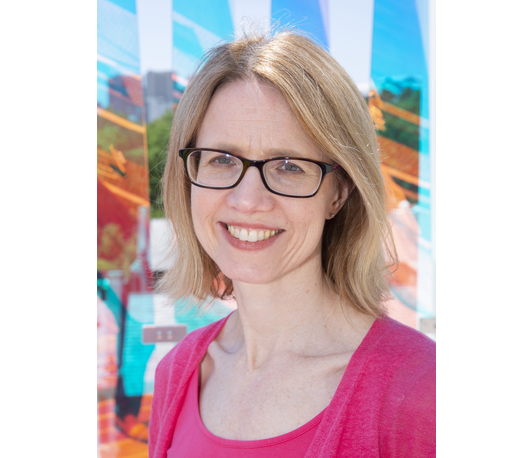Ernst Dieter Gilles Lecture Award: Prof. Martha Grover, Continuous biocatalytic crystallization to address beta-lactam supply challenges
Prof. Martha Grover: Continuous biocatalytic crystallization to address beta-lactam supply challenges
- Date: Dec 14, 2023
- Time: 04:00 PM - 05:30 PM (Local Time Germany)
- Speaker: Prof. Martha Grover
- Professor in the School of Chemical and Biomolecular Engineering at Georgia Institute of Technology, Atlanta, USA, and Associate Chair for Graduate Studies. Joint appointment with Savannah River National Laboratory.
- Location: Max Planck Institute Magdeburg
- Room: Big Seminar Room "Prigogine"
- Contact: sek-pse@mpi-magdeburg.mpg.de

Ernst Dieter Gilles Lecture Award
The Max Planck Institute for Dynamics of Complex Technical Systems in Magdeburg cordially invites you to the first talk of its Ernst Dieter Gilles Lecture Award.
With this award, the Institute honors outstanding scientific achievements in the field of systems theory, system dynamics and control engineering in memory of its founding director Prof. Dr.-Ing. Ernst Dieter Gilles, who passed away in 2019.
The Max Planck Institute Magdeburg will award this distinction for the first time in 2023, honoring the US-American chemical engineer Prof. Martha Grover in recognition of her contributions to system dynamics and control, including novel methods and their application to a wide range of systems.
Martha Grover is a Professor in the School of Chemical &
Biomolecular Engineering at Georgia Tech, and Associate Chair for Graduate
Studies. She holds a joint appointment with Savannah River National Laboratory.
Her research considers molecular self assembly and the emergence of biological
functions.
Abstract
Beta-lactam antibiotics are a critical tool for the treatment and prevention of many types of infection; however repeated shortages of these medicines continue to occur partly because of geographically limited production. In this study, we designed an intensified process for the steady state production of amoxicillin and cephalexin drug product at a rate of 10 doses/hour. Reactive crystallization of the drugs increases selectivity and productivity, making biocatalytic synthesis feasible but complicating the separation of product crystals, aqueous solvent, and catalyst, which must be recycled. To this end, we designed an immobilized biocatalyst which is separated from the crystals based on their smaller size. A wet mill loop keeps the crystal size small by promoting nucleation and breakage while avoiding grinding of the catalyst particles. Extensive process analytical technology, process modeling, and stress testing ensure a robust process and that drug quality exceeds regulatory requirements. Multi-day campaigns showed that steady operation can be maintained for at least 72 hours, but that productivity slowly diminishes as the catalyst particles are encrusted with crystals. Dissolution of encrusted crystals restores catalytic activity. Swapping of beta-lactam cores and side chains can produce different beta-lactam antibiotics to suit immediate demands, made possible by the biocatalyst’s promiscuity. The small footprint and aqueous waste stream enable deployment at point of care; however, the process can also be scaled up to diversify global production. For the scaled-up process, where conversion, yield, and process mass intensity become critical, we demonstrate recovery and recycling of unreacted substrates.
Short Biography
Martha Grover is a
Professor in the School of Chemical & Biomolecular Engineering at Georgia
Tech, and Associate Chair for Graduate Studies. She holds a joint appointment with
Savannah River National Laboratory. She earned her BS in Mechanical Engineering
from the University of Illinois, Urbana-Champaign, and her MS and PhD in Mechanical
Engineering from Caltech. She joined Georgia Tech as an Assistant Professor in
2003. In 2011 she received the Outstanding Young Researcher Award from the
Computing and Systems Technology Division of AIChE, and in 2018 the Himmelblau
Award for Innovations in Computer-Based Chemical Engineering Education. Her research
program is dedicated to understanding, modeling, and engineering the
self-assembly of atoms and small molecules to create larger scale structures
and complex functionality. Her approach draws on process systems engineering,
combining modeling and experiments in applications dominated by kinetics,
including film deposition, crystal growth, and origins of life chemistry.
Participating via Zoom
https://eu02web.zoom-x.de/j/67362577144?pwd=TWNZSGRjSTdZYkR0bTBmOHBqTWpUUT09
Meeting-ID: 673 6257 7144
Kenncode: 734623